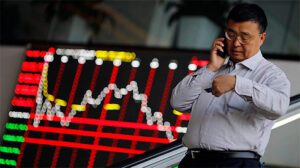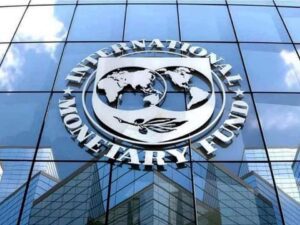
Mining and metallurgical group “Metinvest” has carried out a number of reshuffles in its management, in particular, by expanding the area of responsibility of the general director of the Zaporizhzhya metallurgical plant “Zaporizhstal” Alexander Mironenko.
According to the official statement of the press service of the Metinvest group, in response to a corresponding request from the Interfax-Ukraine agency on Thursday, the changes in the organizational structure of Metinvest are due to the fact that the Russian military aggression against Ukraine led to the shutdown of the group’s enterprises in Mariupol and Avdiivka, the break sustainable technological and supply chains – both intragroup and external.
“In response to new challenges, Metinvest decided to change the organizational structure of the group, designed to improve the operating model of sales, logistics and purchases, to strengthen the company. Thus, the Commercial Directorate of the Metinvest Group was created on the basis of the Sales Directorate and the Logistics Directorate and procurement. Dmitry Nikolaenko headed the Commercial Directorate,” the response to the agency explains.
And it is added that the unification of the areas of logistics, sales and purchases and the creation of a single center for their coordination and management is aimed at the effective management of key cost processes in the company, at obtaining an additional effect from the synergy of these main functions and building an end-to-end process of their cross-functional interaction.
“The changes also affected the Operational Directorate of the Metinvest Group, which was headed by the General Director of Zaporizhstal Alexander Mironenko. He will also continue to act as the General Director of the joint venture of the Metinvest Group – the Zaporizhstal Combine,” the company’s information states.
At the same time, it is emphasized that the company seeks to maintain its human resources potential, therefore, all rotations and appointments to key positions are made by moving managers or combining roles, taking into account changes in the business configuration.
Zaporizhstal is one of the largest industrial enterprises in Ukraine, whose products are in great demand among consumers both in the domestic market and in many countries of the world. The plant specializes in high-quality hot-rolled steel coil, hot-rolled sheet, cold-rolled sheet, cold-rolled coil made of carbon and low-alloy steels, as well as steel strip, black tin, bent profile.
Zaporizhstal is in the process of integrating into the Metinvest group, the main shareholders of which are PJSC System Capital Management (71.24%) and the Smart Holding group of companies (23.76%).
Metinvest Holding LLC is the management company of the Metinvest group.

Stock indices of the Asia-Pacific region fall on Thursday, following the dynamics of the US stock market.
Investors are evaluating the minutes of the September meeting of the US Federal Reserve, which showed that the US Central Bank is expected to continue raising key rates and keep them high until inflation shows signs of slowing down.
Meanwhile, a number of representatives of the Fed’s leadership believe that in the face of uncertainty, it will be important to adjust the pace of further tightening of monetary policy in order to limit the risk of negative consequences for the economy, the protocol says.
The market is now waiting for the publication of US inflation data in September, which may indicate the effectiveness of the Fed’s policy. The Labor Department report is due Thursday at 3:30 p.m., and analysts on average expect U.S. consumer prices to rise 8.1% year-on-year last month after rising 8.3% a month earlier, according to Trading Economics.
The Hong Kong Hang Seng has lost 1% by 8:13 Moscow time, it is falling for the sixth trading in a row and is at its lowest level in the last 11 years. China’s Shanghai Composite, meanwhile, shed 0.08%.
In Hong Kong, tech stocks continue to fall sharply after it became known that the US is tightening export controls on high-tech semiconductor products and chip-making equipment. Papers JD.com Inc. (SPB: JD) down 3.2%, Netease Inc. (SPB: NTES) – 2.8%, Tencent (SPB: 700) Holdings Ltd. – 1.3% and Alibaba (SPB: BABA) Group – 1%.
At the same time, investors are being negatively impacted by increased coronavirus restrictions in China ahead of the 20th Congress of the Communist Party of China, which begins this weekend.
Among the biggest losers among the Hang Seng components are also listed real estate developers Country Garden Holdings (SPB: 2007) Co. Ltd. (-9.2%) and Longfor Group Holdings Ltd. (-4.4%), and China Merchants Bank Co. Ltd. (-4.2%).
The value of the Japanese Nikkei 225 fell by 0.5% by 8:20 Moscow time.
The leaders of the fall in quotations are papers Toho Co. Ltd. (-3.9%), Daikin Industries Ltd. (-2.9%) and Toto Ltd. (-2.8%).
Meanwhile, the value of Toshiba Corp. up 7.6% on news that a group of investors led by Japan Industrial Partners Inc. put forward an offer to buy the company for 2.8 trillion yen ($19.06 billion).
The Australian S&P/ASX 200 fell 0.07%.
The capitalization of the world’s largest mining company BHP fell by 0.8%, while the shares of its competitor Rio Tinto 0.6%.
The South Korean index Kospi by 8:35 Moscow time fell by 1.4%.
Quotes of securities of one of the world’s largest manufacturers of chips and electronics Samsung Electronics Co. fall by 0.4%, the cost of automaker Hyundai Motor fell by 1.5%.

The international vertically integrated pipe and wheel company Interpipe in January-June of this year reduced its net profit by 33.8% compared to the same period last year – to $19.532 million from $29.431 million.
According to the company’s interim report on operating and financial results for the second quarter and as a whole for the first half of 2022, pretax profit in January-June decreased by 51%, to $24.899 million from $50.766 million for the same period in 2021.
At the same time, operating profit increased by 6%, to $66.567 million from $62.847 million.
Interpipe in the first half of this year received $50.429 million EBITDA, which is 54.7% lower than in the same period last year ($111.209 million). The company’s revenue for this period decreased by 9.9%, to $595.638 million from $661.055 million.
In addition, Interpipe reduced free cash from $206.008 million at the beginning of this year to $156.767 million by the middle of the year.
Interpipe is a Ukrainian industrial company, a manufacturer of seamless pipes and railway wheels. The company’s products are supplied to more than 80 countries through a network of sales offices located in the key markets of the CIS, the Middle East, North America and Europe. In 2021, Interpipe sold 602,000 tonnes of pipe products and 174,000 tonnes of railway products. Railway products are sold under the KLW brand.

The UN General Assembly has adopted a resolution on respect for the territorial integrity of Ukraine, which also condemns Russia’s attempt to annex the temporarily occupied territories of Donetsk, Luhansk, Kherson and Zaporozhye regions of Ukraine.
According to the broadcast from the General Assembly hall, 143 out of 193 participants voted in favor, 35 countries abstained (Algeria, Armenia, Bolivia, Burundi, Central African Republic, China, Congo, Cuba, Eritrea, Eswatini, Ethiopia, Guinea, Honduras, India, Kazakhstan, Kyrgyzstan, Laos, Lesotho, Mali, Mongolia, Mozambique, Namibia, Pakistan, South Africa, South Sudan, Sri Lanka, Sudan, Tajikistan, Thailand, Togo, Uganda, Tanzania, Uzbekistan, Vietnam, Zimbabwe), voted 5 against (Belarus, DPRK , Nicaragua, Russia and Syria).

Difficult year awaits Ukraine in 2023: the public finance deficit is estimated at $3-4 billion, it is necessary to ensure the stability of the economy, and the IMF will provide support: an international forum will be convened in the near future to solve this problem, said the Managing Director of the International Monetary Fund Kristalina Georgieva.
“We need to learn how to ensure the sustainability of the economy. According to our preliminary estimates, three to four billion dollars are needed monthly,” she said at the second meeting of the “round table” of ministers to support Ukraine as part of the annual meeting of the IMF and the World Bank in Washington in Wednesday.
Responding to the call of the President of Ukraine Volodymyr Zelensky to organize an economic forum, which meets on a regular basis, and considers the macro-situation in the country, the lack of funding and solves the problem of its reduction, Georgieva said that such work is already underway.
“We will convene the forum as soon as possible,” the head of the IMF said.
She also noted that the Fund has a new platform for interaction, allowing for monitoring jointly with the board of directors, which is the way to a full-fledged program for Ukraine, which Zelensky called for.
“We are moving with you in the direction of a strong Ukraine,” Georgieva stressed.
US Treasury Secretary Janet Yellen noted that a new IMF program for Ukraine could be early next year.
Georgieva clarified that the Fund’s team, together with the Ukrainian team, immediately after the annual meeting of the IMF and the WB, will determine the macroeconomic framework and budget of Ukraine.
She expressed her hope that the war would end sooner rather than later. “But judging by what we see, we should be close to the Ukrainian people,” the head of the IMF said.
She recalled that Ukraine’s international partners have already mobilized $35 billion, a significant part of which has already been transferred, and called for further support, especially in the form of grants.
According to Georgieva, further needs will be determined, firstly, by the cost of social services, which depends on war and migration, and secondly, the cost of restoring vital infrastructure, which also depends on war and on prioritization.
“And thirdly, what are the energy needs of the country, how much needs to be imported to provide for people in Ukraine, and this depends, of course, on the horrors of war,” the managing director added.
She noted that the senseless war of Russia against Ukraine has sharply worsened the prospects for the global economy and brought the most dramatic consequences for the people of Ukraine.
As reported earlier, Finance Minister Sergei Marchenko said that the government estimates the need to finance the state budget deficit in 2023 at $3.5 billion per month.
The first meeting of such a “round table” was held at the spring meeting of the IMF and WB on April 21. It announced Ukraine’s monthly need of $5 billion to finance the state budget deficit in the context of the war unleashed by Russia.
The draft state budget of Ukraine for 2023, which was adopted in the first reading, provides for external financing of the deficit in the amount of $38 billion, or about $3.2 billion per month.

Vitaliy Litovka, a representative of the Metinvest mining and metallurgical group, has been appointed General Director of PJSC Yuzhkoks (Kamenskoye, Dnepropetrovsk region), previously he held a similar position at PJSC Avdeevsky Coke and Chemical Plant (AKKhZ).
According to the official announcement of the Supervisory Board of the company, Litovka was appointed CEO on September 2, 2022 for the period from September 5, 2022 to April 4, 2023 inclusive.
At the same time, it is specified that earlier Litovka was the general director of AKHZ until September 2022.
The authorized capital of PJSC “Yuzhkoks” is UAH 171.918 million, the par value of the share is UAH 0.25.